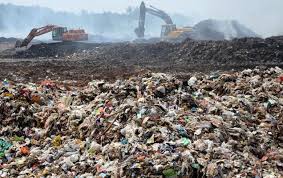
When the mafia acts like the state. Quantifying the (bad) effect of Italian organised crime on safe waste disposal
The phenomenon of organised crime in Italy is intrinsically connected with social development and is a powerful brake on institutional performance. The power of the organised crime lies in its involvement into seemingly legal activities and in the control exercised over entire economic sectors through systematic extortion and violence.
Since the early Nineties, southern regions in Italy have experienced chronic issues of illegal disposal of urban waste, mainly due to easy access to uncultivated land, presence of caves and sovereignty of mafiosi – to use a general definition that encompasses mafia, camorra, ‘ndrangheta and other networks. When combined with inherent weakness of local administrations that turn a blind eye to illicit trafficking of waste, this poses a serious threat to local welfare, health and agriculture.
In Italy, waste management is a public service funded by revenue from waste taxes. The operational part – collection, treatment and landfilling – is performed by private companies or subsidiaries, which compete in public tenders. The regional authority, via a regional commission, sets an average value for the price of landfilled waste, while local waste operators set site-specific gate fees. It follows that the waste operator gains higher profit from the combination of higher prices and larger quantities of treated waste. Net economic benefit from waste management depends on private costs of landfill establishment, operation, and health and environmental standards; hence it is not unreasonable to say that private costs are lower if the waste operator deviates to illegal disposal – an option offered by mafia.
This generates a loss of economic efficiency; the rent from waste management activities entirely accrues to criminal networks, which often infiltrate in the tender system and bid comparatively lower prices.









